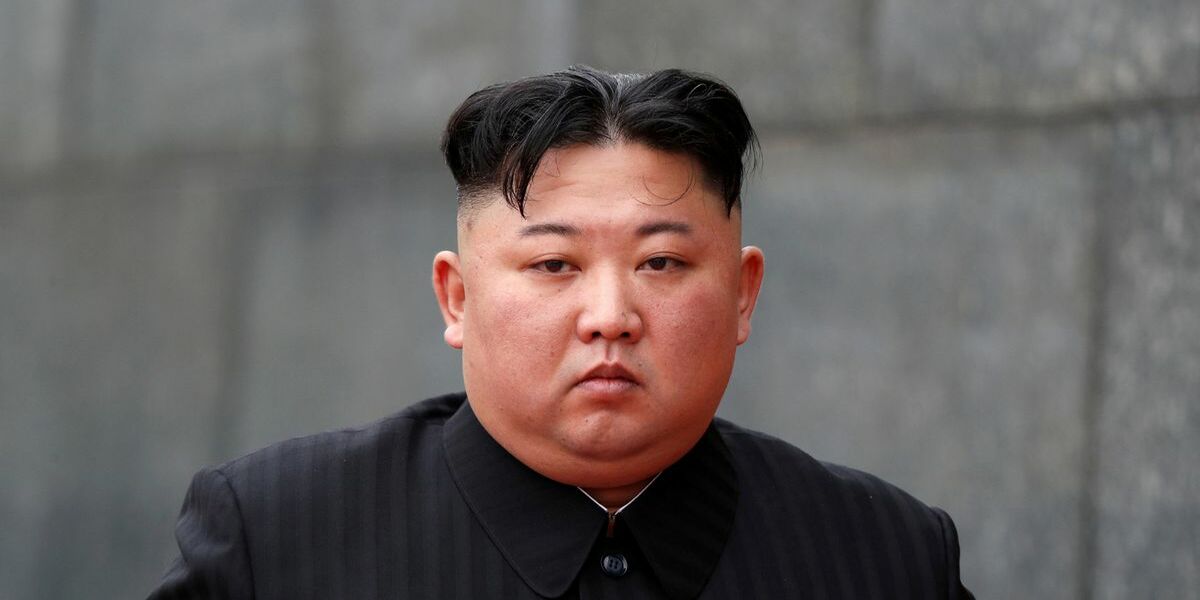South Korea and Japan claimed North Korea fired a ballistic missile toward the sea off its east coast on Wednesday, less than a week after Pyongyang pledged to develop nuclear weapons “at the fastest possible speed.”
The North’s 14th known weapons test this year takes place just days before Yoon Suk-yeol, the South’s incoming president, takes office on May 10. On April 16, North Korea conducted its most recent test, which comprised a new tactical guided weapon aimed at increasing its nuclear capacity.
The launch was detected by South Korea’s Joint Chiefs of Staff (JCS) at noon in the Sunan area of Pyongyang, which is home to an international airport and where the North claims to have launched its largest intercontinental ballistic missile (ICBM),
According to the JCS, the missile flew about 470 kilometres (292 miles) and reached a maximum height of 780 kilometres (485 miles).
“North Korea’s recent series of ballistic missile launches poses a significant threat to the peace and stability of not only the Korean peninsula, but also the worldwide community,” the JCS said in a statement, urging the North to immediately cease such acts.
Both the outgoing and new South Korean presidents’ offices sharply criticised the launch, with Yoon’s team promising to take rigorous action and design “more basic deterrence measures” in response.
The US criticised the test and reiterated its urge for Pyongyang to resume talks over its nuclear and missile programmes.
“Like the DPRK’s recent testing of at least three intercontinental ballistic missiles,” a State Department official stated, “this launch is a flagrant violation of multiple UN Security Council resolutions.”
It claimed the launch demonstrated the threat North Korea’s weapons programmes pose to the country’s neighbours and the region, referring to North Korea by its official name’s initials.
Pyongyang has been asked by the US military to desist from any disruptive acts. “We will continue to monitor the situation,” it added in a statement, “although we have judged that this occurrence does not pose an imminent threat to US personnel, territory, or that of our allies.”
Officials and experts in Seoul said it was too soon to judge whether the recent test featured another ICBM.
“It might be an ICBM or something with a shorter range,” Yoon’s nominee for defence minister, Lee Jong-sup, said during his confirmation hearing.
The missile’s range is 500 kilometres (311 miles) and its maximum altitude is 800 kilometres, according to Japanese deputy defence minister Makoto Oniki (497 miles). He stated that the data was still being analysed by the government to ascertain its kind.
“North Korea’s recent actions, including repeated missile launches, cannot be accepted since they constitute a threat to the region’s and international community’s security and safety,” Prime Minister Fumio Kishida told reporters, adding that Japan had registered a protest against the country.
North Korean leader Kim Jong Un promised to speed up the development of the country’s nuclear arsenal during a massive military display last week, despite delayed denuclearization talks with the US.
The North’s first full-capability launch since 2017, a missile soared 1,080 kilometres (671 miles) to an altitude of 6,200 kilometres (3,900 miles) in 71 minutes, according to the JCS.
The launch could have incorporated equipment for satellite reconnaissance systems, according to Ankit Panda, a nuclear policy expert at the Carnegie Endowment for International Peace in the United States.
Cheong Seong-chang, a North Korea expert at Seoul’s Sejong Institute think tank, agreed.
[embedpost slug=”us-evaluates-that-north-korea-may-be-ready-to-conduct-underground-nuclear-test-by-this-month/”]
“Today’s range and maximum altitude were similar to those reported in the two prior tests,” Cheong said, “but it demonstrated development in its capacity.”
South Korean and Japanese nuclear envoys met in Seoul on Wednesday, pushing the North to de-escalate tensions and return to diplomacy, according to Seoul’s foreign ministry.
Liu Xiaoming, China’s nuclear negotiator, also met with Vice Foreign Minister Choi Jong-kun, who urged Beijing to play a constructive role in resolving the crisis, according to the ministry.
Yoon is laying out a foreign policy strategy ahead of his inauguration, after signalling a harsh stance against Pyongyang while leaving the door open for discussion.
Lee, a retired former deputy chairman of the Joint Chiefs of Staff, testified at the hearing that he would strengthen South Korea’s deterrent power to “sternly” respond to North Korean nuclear and missile threats.
North Korea may begin nuclear tests shortly after violating its 2017 ban on long-range missile testing, according to authorities in Seoul and Washington.
When asked about a possible new nuclear test during the hearing, Lee replied that preparations appeared to be underway, maybe for a smaller, tactical nuclear bomb.




















